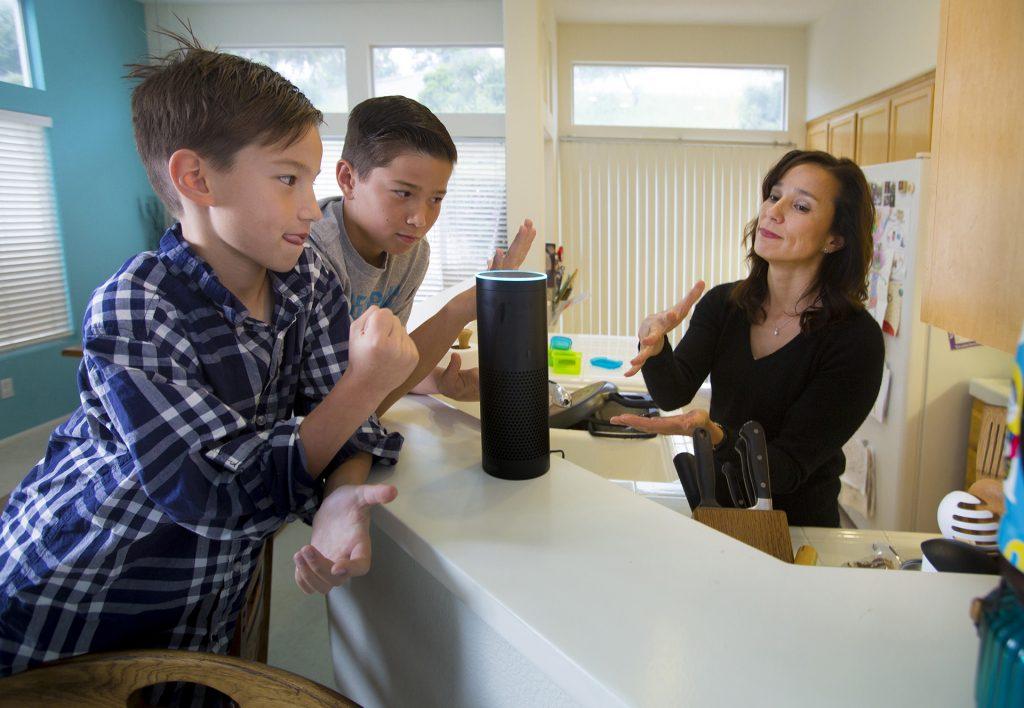Siri, Alexa, and Sophia are all females. We as a society have forced gender on technology, which opens the door to inherent discrimination.
Lucee Laursen
Siri, Alexa, and Sophia all have one thing in common: their gender. For some reason, most audible helping voices are female. GPS systems, phones, and even the world’s first robot resemble the female gender. Thrusting our ideas of gender upon inanimate objects such as technology opens the door to sexism.
Tech companies have found that consumers want voices that sound friendly, warm, and competent — all traits that are, in the United States, more associated with women. Some theorize that people are generally more afraid of an automated male’s voice because of the character HAL from the movie A Space Odyssey. This would make sense, because there are hardly any preselected male automated voices on the market.
There are several more theories attempting to explain the phenomenon. Regardless of the reason, is it sexist to have a majority of female voices such as Siri constantly helping us? At the very least, this reinforces presumed stereotypes about what women should be good at. Women are overrepresented in most helping professions, even though feminism has come a far way to ensure that other women have the opportunity to choose what fields they would like to work in. So, yes, having mainly female-like voices that reinforces female stereotypes, created by a male-dominated industry, comes dangerously close to being sexist.
Escalating things, Saudi Arabia has developed a lifelike robot named Sophia. It is the most likelife robot to date and uses the pronoun “she.” The underlying issue for all animated voices and robots boils down to one question: Why do we thrust gender on inanimate objects?
In recent years, gender norms and stereotypes have come under such a large amount of scrutiny that some believe gender should not exist. Gender stereotypes run deep in almost every society. This leads to discrimination, under-representation, and a whole slew of different problems that our society has struggled to deal with and make up for. So why would we want technology to have tech-gender as well?
No matter how developers describe their reasoning behind deciding to make a voice female or male, as long as they continue to push gender on their their products, they will be closely observed by activist groups waiting for them to slip up. The truth is, women have a tricky history with being secretaries, so of course making default female voices for secretary-type helping devices is problematic. At the same time, if male and female voices are not evenly represented, this again can be an issue. Giving robots and other technologies gender has, and will continue to have, repercussions.
Technology should be just that: technology. Non-gender technology is best for companies anyway, because it ensures that no consumer feels upset by the product. This allows for more sales, which means more profit. Everyone wins.
Despite obvious obstacles that go along with gender in technology, such tech companies as Apple and Google continue to press gender on their products based on research conducted in 2014 that found that people generally find a woman’s voice more attractive than a man’s. But in a world in which people are already able to build lifelike robots, there must be a line drawn. If we do not, there could be harmful repercussions. Imagine a world in which all female robots worked as secretaries and all male robots were CEOs. Robots have the ability to transcend gender because they are inherently genderless. It does not make sense for robots to be subjected to a construct that should not and does not exist for them.










